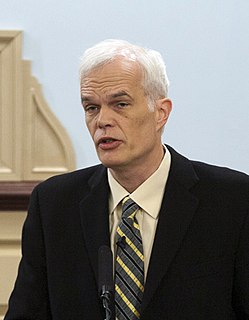A Quote by Ambrose Bierce
HATRED, n. A sentiment appropriate to the occasion of another's superiority.
Quote Topics
Related Quotes
I extend my greetings and good wishes to all our citizens on the joyous occasion of Deepawali. The festival of lights, celebrated with gaiety and enthusiasm all over the country, signifies the victory of good over evil and is an appropriate occasion for us to resolve to follow the high ideals in life.
Those who attempt to conquer hatred by hatred are like warriors who take weapons to overcome others who bear arms. This does not end hatred, but gives it room to grow. But, ancient wisdom has advocated a different timeless strategy to overcome hatred. This eternal wisdom is to meet hatred with non-hatred. The method of trying to conquer hatred through hatred never succeeds in overcoming hatred. But, the method of overcoming hatred through non-hatred is eternally effective. That is why that method is described as eternal wisdom.
... The person who, at any stage of a conversation, disagrees, should at least hope to reach agreement in the end. He should be as much prepared to have his own mind changed as seek to change the mind of another ... No one who looks upon disagreement as an occasion for teaching another should forget that it is also an occasion for being taught.
We took a bus to the nearby monastery of one of the last great Tang dynasty Chan masters, Yun-men. Yun-men was known for his pithy 'one word' Zen. When asked 'What is the highest teaching of the Buddha?' he replied: 'An appropriate statement.' On another occasion, he answered: 'Cake.' I admired his directness.
The world would hate His followers, not because of evil in their lives, but precisely because of the absence of evil or rather their goodness. Goodness does not cause hatred, but it gives occasion for hatred to manifest itself. The holier and purer a life, the more it would attract malignity and hate. Mediocrity alone survives.
A man who is convinced of the truth of his religion is indeed never tolerant. At the least, he is to feel pity for the adherent of another religion but usually it does not stop there. The faithful adherent of a religion will try first of all to convince those that believe in another religion and usually he goes on to hatred if he is not successful. However, hatred then leads to persecution when the might of the majority is behind it.

































